Victim identity is based on an identification with victim-ness. This identification unconsciously insists that the person so identified can be nothing else but the victim. Life-all of life-becomes defined by the thoughts and emotions of a pervasive as-if victim-ness, even when the Victim is not being victimized. – Andrea Mathews LPC, NCC
Constantly feeling victimized can heavily affect your mind, heart, conviction and self-respect and most importantly, your life.
“Pain is no one’s fault.” – Wayne Muller
Whether or not you agree with this statement, it’s pretty likely that there has been a time or two, or more, that it didn’t seem true. Who among us has never felt the sting of anger or the desire for retaliation, or the long slow burn of resentment when we have felt wronged or treated unjustly or unfairly.
There seems to be a fairly universal tendency to respond to pain with an acute desire to identify the source of the pain in order to prevent it from inflicting more suffering on us. Pull the hand away from the hot stove, take a couple of aspirin, ease the distress of a headache, or in the case of a relationship, identify the person whose behavior has caused me pain.
Doing so raises my level of vigilance and provides me with the security, or at least a sense of security that allows me to feel less vulnerable to the likelihood of future pain from that person. It’s a reasonable response and is likely to be effective as a protective strategy, but it often comes with a downside that can create unforeseen difficulties.
It’s difficult, if not impossible to assign the person who we believe to be the cause of our pain without identifying ourselves as the victim of this person. Where there are perpetrators of suffering, there are inevitably victims of perpetration. And this is where the plot can thicken.
Read Steps To Be Empowered And Not A Victim
It’s a short distance from feeling victimized to becoming an active agent in the dance between heroes and villains. This is not to suggest that cruel or dangerous people don’t exist in the world and that we don’t need to be mindful in regard to whom we choose to trust or not trust. The question is, “Is it possible to be appropriately discerning without taking on the identity of the victim, and what about those situations where we have legitimate grounds to feel victimized; what’s wrong with that?”
“Nobody can hurt me without my permission.” — Mahatma Gandhi
There’s nothing “wrong” with feeling like a victim, but there are consequences to adopting that identity and relating to the world from the experience of being a victim. By definition, a victim is someone who has been injured, harmed, has suffered as a result of circumstances or what we consider to be disrespectful behavior from others.
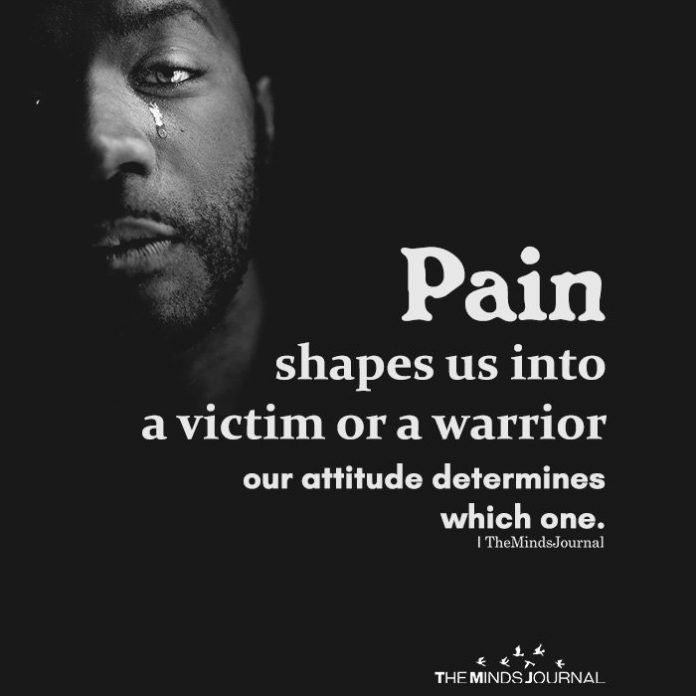
While no one really wants to be victimized many of us are quick to adopt the identity of being a victim particularly when others have behaved towards us in ways that are incongruous with our idea of who we are and how we deserve to be treated. There’s no denying that the world’s population includes a large number of people who cause others, even close family members, harm and pain, and it is necessary to protect ourselves from the possibility of being wounded by them.
But there is a difference between being victimized, and identifying oneself as a victim. Even if we never outwardly refer to ourselves as a victim, if we see ourselves as one, we may be setting ourselves up for trouble, and paradoxically, increasing the chances that we will become victimized again, and again, and again.
Here’s Why.
The way in which we see ourselves has a strong influence on what we experience because we all have a tendency to make life choices that reaffirm our identity. Whether our self-perception is good or bad, strong or weak, positive or negative, victim or perpetrator, our tendency is to act in ways that are consistent with those beliefs.
This is not a conscious decision but is a manifestation of an unconscious need to reinforce a sense of self that provides us with the feeling of security that we know who we are. Even if the person you “know” or think you know isn’t exactly your ideal self, he or she is familiar to you, and it’s that familiarity that provides a sense of security in a world that is for the most part unknown.
Being possessed of this tendency, as many of us are, it’s not so much that we will intentionally set ourselves up to be victimized by others, although that certainly is a possibility and is a reality for many people, but rather, that we will be more predisposed to interpret the acts and motives of others as being intentionally exploitive or deliberately harmful. There could be some truth in these suspicions, but the problem is that these expectations don’t always feel like suspicions, but rather they feel like reality.
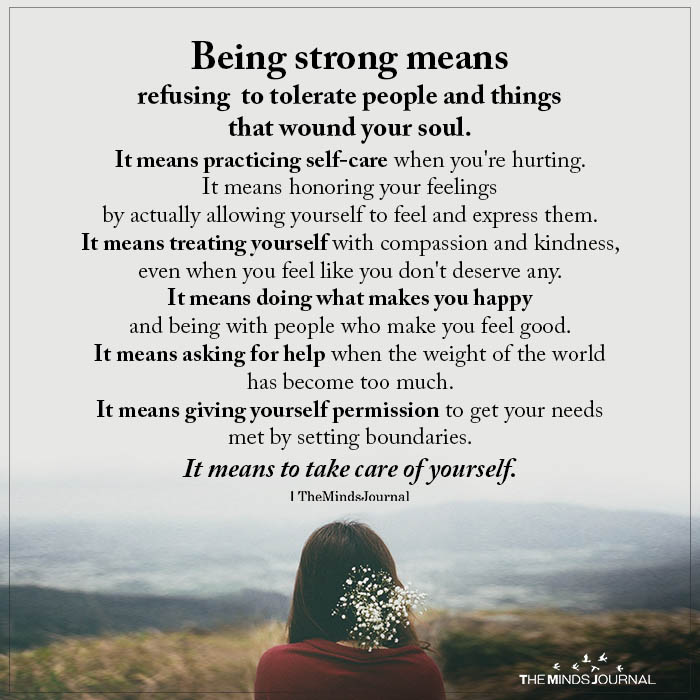
Expectations can be questioned or examined. Reality can’t; it just is. Consequently, reinforcing a victim identity can produce a self-fulfilling prophecy in which we get to collect lots of examples that validate a worldview of victims and perpetrators.
While some degree of this tendency is present with most people, an extreme degree can lead to paranoia, which is a mental disorder characterized by delusions of persecution and mistrust of others, without evidence or justification.
Hopefully, most of the people reading this are not that far over to that end of the spectrum, but that doesn’t mean that an attachment to a victim identity isn’t to some degree diminishing one’s ability to create meaningful and fulfilling relationships.
Breaking the habit of feeling like who I am is a victim, as opposed to having had an experience in which I felt victimized, like all other ingrained habits is easier said than done.
The reason being that like all other unhealthy habits, there are some benefits and rewards that are inherent in the pattern which often appear to outweigh its negative aspects.
Some Of Them Include:
1. The feeling of greater security comes with a sense that I’m aware of dangers that are lurking. Suspicion puts one on guard that feels less vulnerable than being blissfully unaware
2. A victim is less responsible for avoiding danger and thus can’t be blamed when he or she is taken advantage of or harmed by another.
3. Victims generally have a tendency to carry resentment and feel justified in retaliating at those who they feel they have been abused or exploited.
4. Victims often feel morally superior to perpetrators because they feel themselves to be upright and incapable of ever intentionally engaging in hurtful actions towards others.
5. Holding myself as a victim relieves me of the need to assume any responsibility for the part that I may have played in leading up to the experience that I had.
6. Victims are immune from blame.
Read: 23 Signs You’ve A Victim Mentality (And How To Deal With It)
The Downside Of These “Benefits” Or The Price That Must Be Paid For Them Is:
1. A feeling of powerlessness that inevitably comes with the denial of responsibility.
2. Prolonged feelings of self-pity and resentment that can inhibit the willingness to be vulnerable and fully emotionally available in relationships.
3. A preoccupation with doubts over one’s ability to provide responsible self-care for oneself.
4. A diminished capacity to accurately assess the trustworthiness and intentions of others.
5. A likelihood of feeling increased feelings of loneliness and disconnection that if fostered by a growing sense that the world is a dangerous place.
4 Ways To Recover From The Victim Identity
For those who wish to recover from a victim identity, here are a few guidelines that can help to free you from its grip:
1. Cultivate friendships with people who do not reinforce your feelings of being a victim.
When sharing your feelings and concerns, particularly those related to relationships, be sure to request that they not just provide you with sympathy and agreement that you were unfairly mistreated, but request that they try to help you to see ways in which you may have been complicit in the breakdown that you experienced.
Ask them to help you to see what lessons there might be in your experience that you may not have recognized and how to apply them in the future. Friends and family often mean well but may be blinded by their loyalty to us, and their distress in seeing us suffering.
“No one saves us but ourselves. No one can and no one may. We ourselves must walk the path.” — Buddha
2. Don’t believe everything you think.
Sometimes thoughts can feel like they are ‘the truth’ or ‘reality, when in fact they may be no more than ideas, beliefs, or imaginings. Don’t assume that what you think or believe is always necessarily true. Learn to question authority, even your own.
This is not to say that your thoughts are necessarily wrong or incorrect, but rather that despite how true they seem they may not be completely accurate. Questioning ourselves at this level may feel uncomfortable or threatening to beliefs we hold about who we are, but doing so ultimately enables us to live in a world that is less likely to be based on illusions or unquestioned assumptions.
“Faith is taking the first step even when you don’t see the whole staircase.” — Martin Luther King, Jr.
Read The 7 Point Checklist A Narcissist Will Refer To When Looking For A Victim
3. Make an effort to strengthen the good qualities,
That promotes healthy, responsible relationships including courage, honesty, vulnerability, trustworthiness, compassion, integrity, patience, intentionality, and kindness.
”Trust yourself. Create the kind of self that you will be happy to live with all your life. Make the most of yourself by fanning the tiny, inner sparks of possibility into flames of achievement.” — Golda Meir
4. Seek out opportunities to engage in practices that will support the development of these qualities and continually remind yourself of the benefits,
that you will experience in your life as a result of finding the commitment and self-discipline that will enable you to break free from the grip of a false identity. Envision the experience of how life will be as you experience the growing sense of empowerment, self-acceptance, and deep interpersonal connection that inevitably comes with freedom from the possession of the victim.
It can’t be overemphasized that people do get victimized. All of us have had experiences in life in which we were, through no fault of our own been mistreated, physically and/or emotionally wounded, and treated unfairly by others. The point that we are making here has to do with the distinction between having had an experience of being victimized and embracing the identity of the victim.
“You have power over your mind — not outside events. Realize this, and you will find strength.” — Marcus Aurelius
When we no longer see ourselves as a victim, the world and other people open up to us in a whole new way. Interpersonal conflict diminishes greatly because we no longer see the ‘other’ as an adversary and instead as a messenger sent to me to help me to recognize what fears and attachments.
It is time for me to grow beyond and what I need to do in order to make that happen. It’s not necessarily the easiest path or the path of least resistance, but it’s most certainly the path with the greatest payoff!
Written by Linda and Charlie Bloom
Originally appeared in Psychology today
There is nothing wrong or shameful about feeling scared of certain things; you are human after all. However, do you want to live your entire life with people always looking at you with pity and sympathy?
That is the thing about feeling victimized all the time– people start feeling bad for you, and they start believing that you are not capable of any kind of strength. Be strong, and don’t let your mind play games on you. You are perfectly capable of being a strong and healthy person, so go and make the most of your life.
If you want to know more about feeling victimized all the time, check out this video:
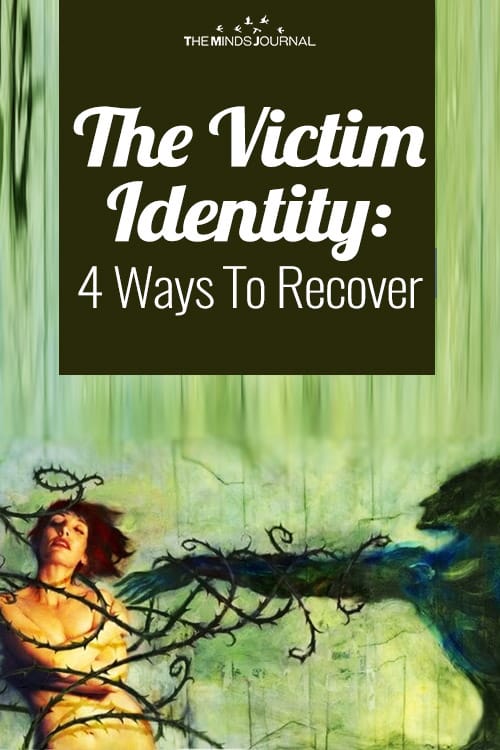
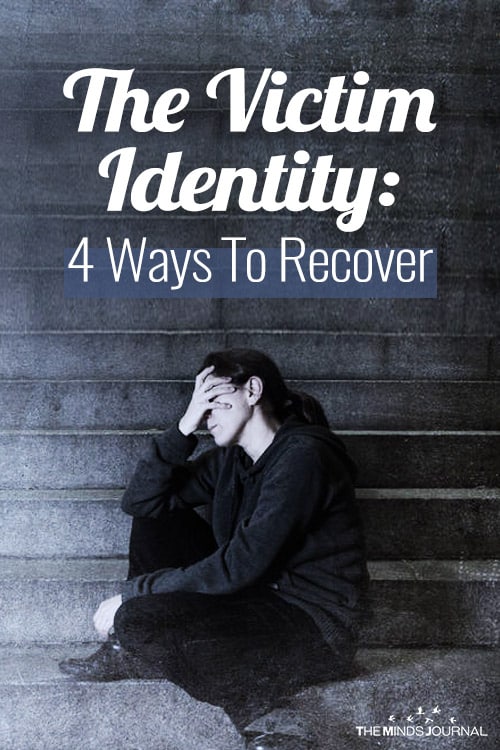


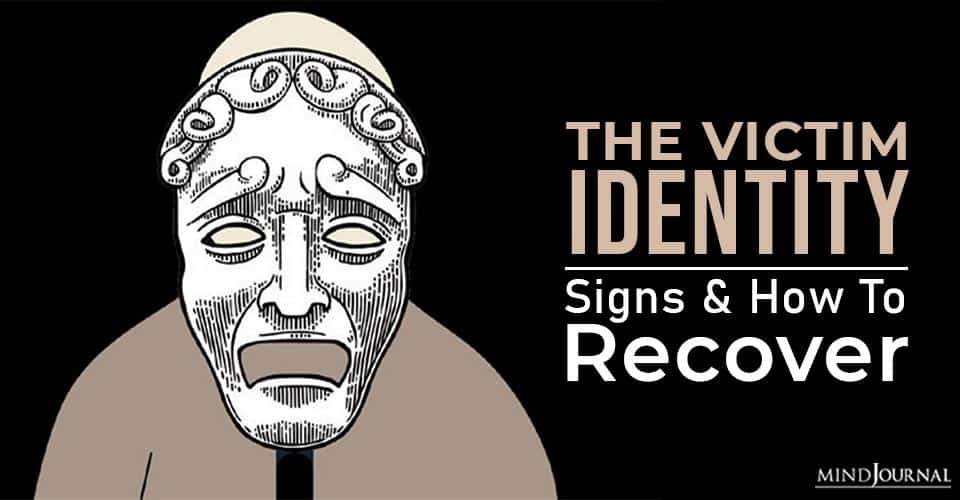







Leave a Reply